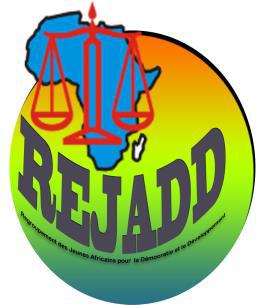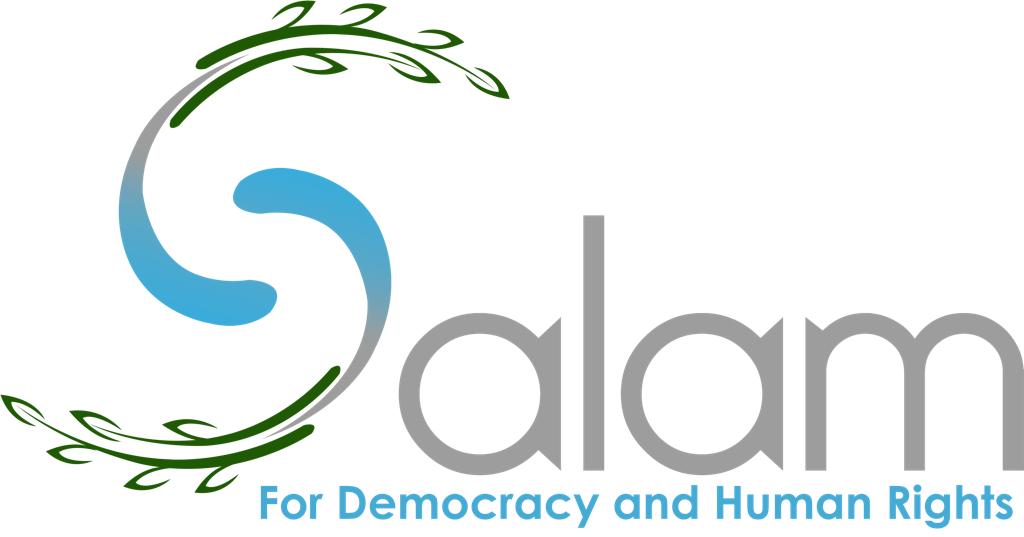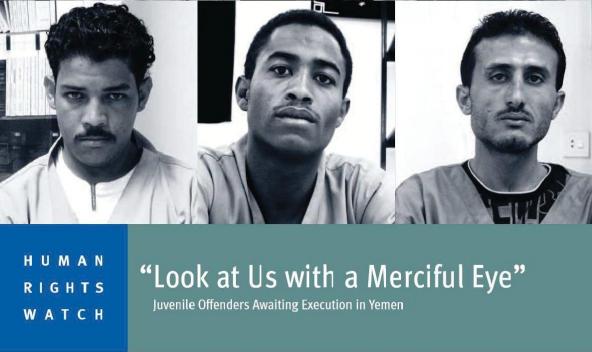Your search “Keep%20the%20death%20penalty%abolished%20in%20the%20ePhilippfines%20e%20e%20e%20e%20e%20e%20e%20e%20e%20e/page/www.centaurtheatre.com ”
Document(s)
My Life As a Death Row Executioner
By YouTube / Real Stories, on 1 January 2020
2020
Multimedia content
United States
More details See the document
Published on Real Stories YouTube channel, this documentary casts a penetrating look at the consequences of the death penalty through three powerful stories – the rare perspective of a former state executioner who comes within days of executing an innocent person; a Boston Marathon bombing victim who struggles to decide what justice really means; and the parents of a murder victim who choose to fight for the life of their daughter’s killer. As the battle to overturn capital punishment comes to a head in the U.S., this provocative film challenges viewers to question their deepest beliefs about justice.
- Document type Multimedia content
- Countries list United States
- Themes list Public debate, Death Row Conditions, Death Penalty,
Document(s)
The Innocence Files
By Netflix, on 1 January 2020
Multimedia content
United States
frMore details See the document
This mini-series sheds light on 8 true stories of wrongful convictions overturned thanks to the work of the Innocence Project and several organizations from the Innocence Network. One of its episode feature the case of Texas death-row exoneree Alfred Dewayne Brown.
- Document type Multimedia content
- Countries list United States
- Themes list Innocence, Legal Representation, Death Penalty,
- Available languages Preuves d'innocence

Member(s)
We Believe in Second Chances
on 30 April 2020
We Believe in Second Chances was founded as a reaction to Yong Vui Kong’s condemnation to death, and are advocating for the abolishment of the death penalty in Singapore.
2020
Singapore

Member(s)
Citizens United for Rehabilitation of Errants (CURE)
on 30 April 2020
Citizens United for Rehabilitation of Errants (CURE) is a grassroots organization that was founded in Texas in 1972. It became a national organization in 1985. CURE believes that prisons should be used only for those who absolutely must be incarcerated and that those who are incarcerated should have all of the resources they need to […]
United States
Document(s)
Portuguese : PENA DE MORTE: SOLUÇÃO DA VIOLÊNCIA OU VIOLAÇÃO DO DIREITO À VIDA?
By Jean Frederick Silva e Souza / Revista Direito e Liberdade, on 8 September 2020
2020
Article
Brazil
More details See the document
Visa o presente artigo a destacar a preocupação do homem com a criminalidade, procurando encontrar meios que possam minimizá-la. Objetiva tornar o assunto objeto de discussão. O tema, dividido em subtemas, procura, no contexto da História, demonstrar como foi tratado esse assunto, verificando a constatação do problema, tomando como medida a paz social. Trata, também, dos aspectos constitucionais sobre o direito à vida, e da sua importância para o ser humano. Detém-se este trabalho à inconstitucionalidade da pena de morte em nosso país, através de uma análise da doutrina a mais científica possível, capaz de conduzir à conscientização inalienada sobre o tema em pauta. Este texto jurídico demonstra que a pena capital não é a solução para a violência, mas uma forma de violar o nosso maior direito, a vida.
- Document type Article
- Countries list Brazil
- Themes list Right to life,

Member(s)
Mouvement contre le Racisme et pour l’Amitié entre les Peuples (MRAP)
on 30 April 2020
The Movement Against Racism and for Friendship between Nations (MRAP) has its origins in the French Resistance: it emerged from the National Movement against Racism, founded secretly in 1941 to save Jewish children from deportation and to thwart the racist ideology of the Vichy regime. Since then the MRAP has taken action against other forms […]
2020
France

Member(s)
REJADD-Togo
on 30 April 2020
The Young African Group for Democracy and Development, Togo-chapter (REJADD-Togo) is an organization promoting and protecting human rights and humanitarian actions. It was officially created on August 11, 2006 and currently has an official chapter in Mali. The REJADD-Togo aims to contribute to the sustainable, integral and harmonious development of Africa in general and Togo […]
Togo

Member(s)
Observatoire Marocain des Prisons
on 30 April 2020
L’Observatoire marocain des prisons (OMP) is an independent non-governmental organisation created by human rights activists to protect and promote the rights of prisoners. It monitors prison conditions in Morocco, provides legal assistance to prisoners and runs a research, information and advocacy centre for more humane prisons. The OMP considers that the dignity and physical and […]
Morocco

Member(s)
Think Centre
on 30 April 2020
Think Centre aims to critically examine issues related to political development, democracy, rule of law, human rights and civil society. They conduct research, campaigns on public awareness. They issue urgent appeals and work by networking and reporting to the UN Human Rights bodies.
Singapore
Document(s)
The Phantom
By Patrick Forbes, on 10 August 2021
2021
Multimedia content
Innocence
Public Opinion
United States
More details See the document
THE PHANTOM tells the story of one of the darkest episodes in the long history of American justice. A story of how the State of Texas knowingly sent an innocent man to his death and left a serial killer at large. A case in which – for the first time – it can be conclusively proven that the US courts executed a blameless man.
This film uncovers the shocking truth behind a tale of murder, corruption and lies that unfolded in the dusty, desperate streets of a Texas oil town nearly thirty years ago.
- Document type Multimedia content
- Countries list United States
- Themes list Innocence / Public Opinion

Member(s)
Japan Innocence and Death Penalty Research Center
on 30 April 2020
The JIADEP mission is to assist those who have been wrongfully incarcerated and sentenced to death, and to educate the public on the tragedies of criminal justice in Japan by lecturing, writing, and demonstrating.
2020
Japan

Member(s)
Confédération générale du travail (CGT)
on 30 April 2020
The General Confederation of Labour (Confédération générale du travail – CGT) is based in France and is strong of 690,000 members. It is affiliated to the European Trade Union Confederation and the International Trade Union Confederation and is one of the confederated unions representing France. Through its analysis, proposals and action, it aims at developping […]
France

Member(s)
Centre for Civil and Political Rights (CCPR)
on 30 April 2020
The Centre for Civil and Political Rights (CCPR) envisions the full realisation of the rights proclaimed in the International Covenant on Civil and Political Rights (ICCPR) and its two Optional Protocols at the universal level. This includes the Second Optional Protocol to the ICCPR, which abolishes the death penalty. The CCPR aims to fulfil that […]
Switzerland

Member(s)
Réseau Marocain Euromed des ONG
on 30 April 2020
Morocco
Document(s)
I Spent A Day With Death Row Survivors
By Anthony Padilla, on 1 January 2020
2020
Multimedia content
United States
More details See the document
Anthony Padilla interviewed 4 death row survivors to shed light on sentencing innocent people to death for a crime they did not commit. Derrick Jamison, Nick Yarris, Peter Pringle and Sunny Jacobs spent between 15 and 23 years awaiting executions, before being finally released from death row.
- Document type Multimedia content
- Countries list United States
Document(s)
Let the Lord Sort Them. The Rise and Fall of the Death Penalty
By Maurice Chammah, on 27 January 2021
2021
Book
Public Opinion
United States
More details See the document
Maurice Chammah (The Marshall Project) explores the rise and fall of capital punishment in Texas where it appears to durably decline in spite of the state’s long use of the death penalty.
- Document type Book
- Countries list United States
- Themes list Public Opinion

Member(s)
SALAM for Democracy and Human Rights (SALAM DHR)
on 30 April 2021
SALAM for Democracy and Human Rights (SALAM DHR) is an NGO that endeavors to preserve universal principles of dignity and respect by shielding democracy and human rights. SALAM DHR conducts monitoring and analysis, produces reports, develops recommendations on policy and legislation, organizes advocacy campaigns, conducts trainings, and builds effective coalitions. SALAM DHR is actively involved […]
2021
Bahrain

Member(s)
Death Penalty Research Unit (DPRU), University of Oxford
on 15 December 2023
The Death Penalty Research Unit has three main aims: to develop empirical, theoretical and policy-relevant research on the death penalty worldwide; to encourage death penalty scholarship including at graduate level, through education, events, research dissemination and an active blog; and to engage in knowledge production, exchange and dissemination in cooperation with civil society, charities, legal […]
2023
United Kingdom
Document(s)
The Death Penalty in the OSCE Area – Background Paper 2010
By Organization for Security and Co-operation in Europe (OSCE), on 8 September 2020
2020
NGO report
Albania
ruMore details See the document
This paper updates The Death Penalty in the OSCE Area: Background Paper 2009.It is intended to provide a concise update to highlight changes in the status of thedeath penalty in OSCE participating States since the previous publication and topromote constructive discussion of this issue. It covers the period from 1 July 2009to 30 June 2010. —– To find past OSCE papers please visit: http://www.osce.org/documents?keys=The+Death+Penalty+in+the+OSCE+Area+-+Background+Paper+
- Document type NGO report
- Countries list Albania
- Themes list Trend Towards Abolition,
- Available languages Смертная казнь в регионе ОБСЕ. Справочный документ за 2010 г.
Document(s)
Report by the Special Rapporteur on torture and other cruel, inhuman or degrading treatment or punishment, Manfred Nowak – MISSION TO MONGOLIA
By United Nations / Manfred Nowak, on 8 September 2020
NGO report
Mongolia
rufrzh-hantesarMore details See the document
The Special Rapporteur is also deeply concerned about all the circumstances surrounding the death penalty in Mongolia, especially the total secrecy. Despite repeated requests to the highest authorities of the Government, as well as prosecutors and the judiciary, the Special Rapporteur was not provided with any official information. Concern was expressed that not even the families of the condemned persons are notified of the exact date or place of execution and do not receive their mortal remains for burial, which amounts to inhuman treatment of the family, contrary to article 7 of the Covenant. Moreover, prisoners on death row at the Gants Hudag and Zuunmod detention centres are held in complete isolation, handcuffed and shackled, and denied adequate food. These conditions constitute additional punishments which can only be qualified as torture as defined in article 1 of the Convention.
- Document type NGO report
- Countries list Mongolia
- Available languages Доклад Cпециального докладчика по вопросу о пытках и других жестоких, бесчеловечных или унижающих достоинство видах обращения и наказания Манфреда Новака - МИССИЯ В МОНГОЛИЮRapport du Rapporteur spécial sur la torture et autres peines ou traitements cruels, inhumains ou dégradants, M. Manfred Nowak - MISSION EN MONGOLIE酷刑和其他残忍、不人道或有辱人格的待遇或处罚问题 特别报告员曼弗雷德·诺瓦克的报告 - 对蒙古的访问Informe del Relator Especial sobre la tortura y otros tratos o penas crueles, inhumanos o degradantes, Manfred Nowak - MISIÓN A MONGOLIAمن وغيره التعذيب بمسألة المعني الخاص المقرر نواك، منفرد السيد تقرير المهينة أو اللاإنسانية أو القاسية العقوبة أو المعاملة ضروب - منغوليا إلى البعثة
Document(s)
Extrajudicial, summary or arbitrary executions: Report of the Special Rapporteur, Asma Jahangir
By United Nations / Asma Jahangir, on 1 January 2003
2003
International law - United Nations
frzh-hantesarruMore details See the document
The report also discusses the issue of capital punishment and makes reference to death penalty cases in which the Special Rapporteur has intervened in reaction to reports that the sentences concerned had been passed in violation of international restrictions and human rights standards.
- Document type International law - United Nations
- Themes list Trend Towards Abolition,
- Available languages Exécutions extrajudiciaires, sommaires ou arbitraires: Rapport de la Rapporteuse spéciale, Mme Asma Jahangir法外处决、即审即决或任意处决: 特别报告员阿斯玛·贾汉吉尔Las ejecuciones extrajudiciales, sumarias o arbitrarias: Informe de la Relatora Especial, Asma Jahangirحالات الإعدام خارج نطاق القضاء أو بإجراء اتموجة أو تعسفاً تقرير المقرر الخاص اسمة جهانقيرВнесудебные, суммарные и произвольные казни: Отчет специального докладчика Асмы Джахангир (Asma Jahangir)
Document(s)
Report of the Special Rapporteur on torture and other cruel, inhuman or degrading treatment or punishment, Manfred Nowak
By United Nations / Manfred Nowak, on 1 January 2009
2009
International law - United Nations
arfrzh-hantesruMore details See the document
In chapter III, the Special Rapporteur focuses on the compatibility of the death penalty with the prohibition of cruel, inhuman and degrading punishment. He concludes that the historic interpretation of the right to personal integrity and human dignity in relation to the death penalty is increasingly challenged by the dynamic interpretation of this right in relation to corporal punishment and the inconsistencies deriving from the distinction between corporal and capital punishment, as well as by the universal trend towards the abolition of capital punishment.
- Document type International law - United Nations
- Themes list Trend Towards Abolition,
- Available languages تقرير المقرر الخاص المعني بمسألة التعذيب وغيره من ضروب المعاملةأو العقوبة القاسية أو اللاإنسانية أو المهينة، مانفرِد نوواكRapport du Rapporteur spécial sur la torture et autres peines ou traitements cruels, inhumains ou dégradants, Manfred Nowak酷刑和其他残忍、不人道或有辱人格的待遇或处罚问题特别报告员曼弗雷德·诺瓦克的报告Informe del Relator Especial sobre la tortura y otros tratos o penas crueles, inhumanos o degradantes, Manfred NowakДоклад Специального докладчика по вопросу о пытках и других жестоких, бесчеловечных или унижающих достоинство видах обращения и наказания Манфреда Новака
Document(s)
Extrajudicial, summary or arbitrary executions: Report of the Special Rapporteur, Bacre Waly Ndiaye
By United Nations / Bacre Waly Ndiaye, on 1 January 1997
1997
International law - United Nations
arrufrzh-hantesMore details See the document
This report is submitted pursuant to Commission on Human Rightsresolution 1997/61 of 16 April 1997 entitled “Extrajudicial, summary orarbitrary executions”. It is the sixth report submitted to the Commissionon Human Rights by Bacre Waly Ndiaye and the fifteenth submitted to theCommission since the mandate on “Summary and arbitrary executions” wasestablished by Economic and Social Council resolution 1982/35 of 7 May 1982.
- Document type International law - United Nations
- Themes list Trend Towards Abolition,
- Available languages حالات الإعدام خارج نطاق القضاء أو بإجراء اتموجة أو تعسفاً تقرير المقرر الخاص باكرة والي ندايةВнесудебные, суммарные и произвольные казни: Отчет специального докладчика Бакре Вали Ндиай (Bacre Waly Ndiaye)Exécutions extrajudiciaires, sommaires ou arbitraires: Rapport du Rapporteur spécial, Bacre Waly Ndiaye法外处决 即审即决或任意处决: 特别报告员巴克雷瓦利恩迪亚耶先生Las ejecuciones extrajudiciales, sumarias o arbitrarias: Informe del Relator Especial, Bacre Waly Ndiaye
Document(s)
Report of the Special Rapporteur on torture and other cruel, inhuman or degrading treatment or punishment, Manfred Nowak – MISSION TO CHINA
By United Nations / Manfred Nowak, on 8 September 2020
2020
NGO report
China
frzh-hantesarruMore details See the document
The Special Rapporteur also observes positive developments at the legislative level, including the planned reform of several laws relevant to the criminal procedure, which he hopes will bring Chinese legislation into greater conformity with international norms, particularly the fair trial standards contained in the International Covenant on Civil and Political Rights (ICCPR) which China signed in 1998 and is preparing to ratify. He also welcomes the resumption by the Supreme People’s Court (SPC) of its authority to review all death penalty cases,59 particularly given the fact that the quality of the judiciary increases as one ascends the hierarchy. The Special Rapporteur suggests that China might use the opportunity of this important event to increase transparency regarding the number of death sentences in the country, as well as to consider legislation that would allow direct petitioning to the SPC in cases where individuals do not feel that they were provided with adequate relief by lower courts in cases involving the useof torture, access to counsel, etc.
- Document type NGO report
- Countries list China
- Available languages Rapport de Manfred Nowak, Rapporteur spécial sur la torture et autres peines ou traitements cruels, inhumains ou dégradants - MISSION EN CHINE酷刑和其他残忍、不人道或有辱人格的待遇或处罚问题 特别报告员曼弗雷德·诺瓦克的报告 - 对中国的访问Informe del Relator Especial sobre la tortura y otros tratos o penas crueles, inhumanos o degradantes, Manfred Nowak - MISIÓN CHINAالمعاملة ضروب من وغيره التعذيب بمسألة المعني الخاص المقرر تقرير نوفاك مانفريد السيد المهينة، أو اللاإنسانية أو القاسية العقوبة أو - الصين إلى ﺑﻬا قام التي البعثةДоклад Специального докладчика по вопросу о пытках и других жестоких, бесчеловечных или унижающих достоинство видах обращения и наказания Манфреда Новака
Document(s)
Extrajudicial, summary or arbitrary executions: Report of the Special Rapporteur, Ms. Asma Jahangir
By United Nations / Asma Jahangir, on 1 January 1999
1999
International law - United Nations
arrufrzh-hantesMore details See the document
This report is submitted pursuant to Commission on Human Rightsresolution 1998/68 of 21 April 1998 entitled “Extrajudicial, summary orarbitrary executions”. It is the first report submitted to the Commission byMs. Asma Jahangir and the sixteenth submitted to the Commission since themandate on “summary and arbitrary executions” was established by Economic andSocial Council resolution 1982/35 of 7 May 1982.
- Document type International law - United Nations
- Themes list Trend Towards Abolition,
- Available languages حالات الإعدام خارج نطاق القضاء أو بإجراء اتموجة أو تعسفاً تقرير المقرر الخاص اسمة جهانقيرВнесудебные, суммарные и произвольные казни: Отчет специального докладчика Асмы Джахангир (Asma Jahangir)Exécutions extrajudiciaires, sommaires ou arbitraires: Rapport de Mme Asma Jahangir, Rapporteuse spéciale法外处决即审即决或任意处决: 特别报告员阿斯玛贾汉吉尔女士Las ejecuciones extrajudiciales, sumarias o arbitrarias: Informe de la Relatora Especial, Sra. Asma Jahangir
Document(s)
Extrajudicial, summary or arbitrary executions: Report of the special rapporteur, Ms. Asma Jahangir, submitted pursuant to Commission on Human Rights resolution 1999/35
By United Nations / Asma Jahangir, on 1 January 2000
2000
International law - United Nations
arrufrzh-hantesMore details See the document
In its resolution 1999/35, the Commission on Human Rights requested the Special Rapporteur to continue monitoring the implementation of existing international standards on safeguards and restrictions relating to the imposition of capital punishment, bearing in mind the comments made by the Human Rights Committee in its interpretation of article 6 of the International Covenant on Civil and Political Rights, as well as the Second Optional Protocol thereto.
- Document type International law - United Nations
- Themes list Trend Towards Abolition,
- Available languages حالات الإعدام خارج نطاق القضاء أو بإجراء اتموجة أو تعسفاً تقرير المقرر الخاص اسمة جهانقير, مقدم مطابقا لقرار لجنة الحقوق الانسان 1999/35Внесудебные, суммарные и произвольные казни: Отчет специального докладчика Асмы Джахангир (Asma Jahangir) предоставленный в ответ на резолюцию 1999/35 Комиссии по правам человекаExécutions extrajudiciaires, sommaires ou arbitraires: Rapport de Mme Asma Jahangir, Rapporteuse spéciale, présenté conformément à la résolution 1999/35 de la Commission des droits de l'homme法外处决即审即决或任意处决: 特别报告员阿斯玛贾汉吉尔女士根据人权委员会第1999/35 号决议提交的报告Las ejecuciones extrajudiciales, sumarias o arbitrarias: Informe de la Relatora Especial, Sra. Asma Jahangir, presentado en cumplimiento de la resolución 1999/35 de la Comisión de Derechos Humanos
Document(s)
Extrajudicial, summary or arbitrary executions: Report of the Special Rapporteur, Ms. Asma Jahangir, submitted pursuant to Commission on Human Rights resolution 2001/45
By United Nations / Asma Jahangir, on 1 January 2002
2002
International law - United Nations
arrufrzh-hantesMore details See the document
The report also discusses the issue of capital punishment and makes reference to death penalty cases in which the Special Rapporteur has intervened in reaction to reports that the sentences concerned had been passed in violation of international restrictions and human rights standards.
- Document type International law - United Nations
- Themes list Trend Towards Abolition,
- Available languages حالات الإعدام خارج نطاق القضاء أو بإجراء اتموجة أو تعسفاً تقرير المقرر الخاص اسمة جهانقير, مقدم مطابقا لقرار لجنة الحقوق الانسان 2001/45Внесудебные казни, казни без надлежащего судебного разбирательства или произвольные казни: Доклад Специального докладчика г-жи Асмы Джахангир, представленный в соответствии с резолюцией 2001/45 Комиссии по правам человекаExécutions extrajudiciaires, sommaires ou arbitraires: Rapport de la Rapporteuse spéciale, Mme Asma Jahangir, présenté en application de la résolution 2001/45 de la Commission des droits de l'homme法外处决 即审即决或任意处决: 特别报告员阿斯玛 贾汉吉尔女士 根据人权委员会第 2001/45 号决议提交的报告Las ejecuciones extrajudiciales, sumarias o arbitrarias: Informe de la Relatora Especial, Sra. Asma Jahangir, presentado en cumplimiento de la resolución 2001/45 de la Comisión de Derechos Humanos
Document(s)
Extrajudicial, summary or arbitrary executions: Report of the Special Rapporteur, Asma Jahangir, submitted pursuant to Commission on Human Rights resolution 2002/36
By United Nations / Asma Jahangir, on 1 January 2003
2003
International law - United Nations
arrufrzh-hantesMore details See the document
The report also discusses the issue of capital punishment and makes reference to death penalty cases in which the Special Rapporteur has intervened in reaction to reports that the sentences concerned had been passed in violation of international restrictions and human rights standards.
- Document type International law - United Nations
- Themes list Trend Towards Abolition,
- Available languages حالات الإعدام خارج نطاق القضاء أو بإجراء اتموجة أو تعسفاً تقرير المقرر الخاص اسمة جهانقير, مقدم مطابقا لقرار لجنة الحقوق الانسان 2002/36Внесудебные казни, казни без надлежащего судебного разбирательства или произвольные казни: Доклад Специального докладчика Асмы Джахангир, представленный в соответствии с резолюцией 2002/36 Комиссии по правам человекаExécutions extrajudiciaires, sommaires ou arbitraires: Rapport de la Rapporteuse spéciale, Mme Asma Jahangir, soumis en application de la résolution 2002/36 de la Commission des droits de l’homme法外处决、即审即决或任意处决: 特别报告员阿斯玛·贾汉吉尔根据人权委员会第 2002/36 号决议提交的报告Las ejecuciones extrajudiciales, sumarias o arbitrarias: Informe de la Relatora Especial, Asma Jahangir, presentado en cumplimiento de la resolución 2002/36 de la Comisión de Derechos Humanos
Document(s)
Extrajudicial, summary or arbitrary executions: Report of the Special Rapporteur, Philip Alston
By United Nations / Philip Alston, on 1 January 2004
2004
International law - United Nations
arrufrzh-hantesMore details See the document
The analytical part of the report focuses in depth on a narrow range of issues, with an overall emphasis on accountability. The four principal topics addressed are: (i) genocide and crimes against humanity; (ii) violations of the right to life in armed conflict and internal strife; (iii) capital punishment; and (iv) violations of the right to life by non-State actors.
- Document type International law - United Nations
- Themes list Trend Towards Abolition,
- Available languages ح ا لا ت ا لإ ع د ا م خ ا ر ج ن ط ا ق ا ل ق ض ا ء أ و ب إ ج ر ا ء ا ت م و ج زة أ و ت عس ف ا ً تقرير المقرر الخاص فيليب ألستونВнесудебные казни, казни без надлежащего судебного разбирательства или произвольные казни: Доклад Специального докладчика Филипа АлстонаExécutions extrajudiciaires, sommaires ou arbitraires: Rapport du Rapporteur spécial, M. Philip Alston法外处决、即审即决或任意处决问题特别报告员; 菲利普·奥尔斯顿Las ejecuciones extrajudiciales, sumarias o arbitrarias: Informe del Relator Especial, Philip Alston
Document(s)
TRANSPARENCY AND THE IMPOSITION OF THE DEATH PENALTY, Report of the Special Rapporteur, Philip Alston
By United Nations / Philip Alston, on 1 January 2006
2006
International law - United Nations
arrufrzh-hantesMore details See the document
The present report of the Special Rapporteur on extrajudicial, summary or arbitrary executions analyses a critical area of non-compliance with legal safeguards designed to protect the right to life. It builds upon the proposition that “[c]ountries that have maintained the death penalty are not prohibited by international law from making that choice, but they have a clear obligation to disclose the details of their application of the penalty” (E/CN.4/2005/7, para. 59). The report analyses the legal basis of that transparency obligation and examines case studies that illustrate the major problems that exist in this area.
- Document type International law - United Nations
- Themes list Trend Towards Abolition,
- Available languages الإعدام عقوبة وفرض الش, ألستون∗ فيليب السيد الخاص، المقررТРАНСПАРЕНТНОСТЬ И ВЫНЕСЕНИЕ СМЕРТНОГО ПРИГОВОРА, Доклад Специального докладчика Филипа АлстонаTRANSPARENCE ET IMPOSITION DE LA PEINE DE MORT, Rapport du Rapporteur spécial, M. Philip Alston死刑的公开和执行问题, 特别报告员菲利普·奥尔斯顿的报告LA TRANSPARENCIA Y LA IMPOSICIÓN DE LA PENA DE MUERTE, Informe del Relator Especial, Philip Alston
Document(s)
AEDPA Repeal
By Brandon L. Garrett & Kaitlin Phillips, on 1 September 2022
2022
Academic report
Terrorism
United States
More details See the document
Given how pressing the problem has become, and the real interest in reforms to promote access to justice, this article takes a different tack than prior habeas reform work: to restore habeas corpus to its pre-AEDPA and pre-Rehnquist court state, in which a federal court can review claims and reach their merits. The approach would preserve flexibility at the district court level and remove the many layers of procedural complexity that the Supreme Court and then Congress have erected. We believe that deep changes are needed, and in that, we agree with judges and scholars that have for some time proposed such changes in the writ. As we describe, AEDPA was enacted as a culmination of more than two decades of complex Supreme Court law that had already limited access to federal habeas corpus. While AEDPA incorporated some of those procedural rulings, the concern would be that should AEDPA be repealed, even in part, those court-made restrictions could be interpreted to supplant AEDPA restrictions. Clear statutory language will be needed to ensure that the Court does not frustrate Congress, as it has in the past, by supplementing statutory text in order to limit constitutional remedies. We do not mean to suggest that the various proposals set out here are exhaustive. Our goal is to promote careful considerations of alternatives to the present-day set of federal habeas corpus statutes and accompanying judicial interpretation.
- Document type Academic report
- Countries list United States
- Themes list Terrorism
Document(s)
World Coalition Strategic Plan 2023-2027
By World Coalition Against the Death Penalty, on 22 August 2023
2023
World Coalition
Trend Towards Abolition
frMore details Download [ pdf - 455 Ko ]
- Document type World Coalition
- Themes list Trend Towards Abolition
- Available languages Plan Stratégique 2023-2027 de la Coalition Mondiale
Document(s)
Leaflet LGBTQIA+ people and the Death Penalty
By World coalition against the death penalty, on 2 October 2023
2023
World Coalition
Gender
frMore details Download [ pdf - 861 Ko ]
- Document type World Coalition
- Themes list Gender
- Available languages Brochure personnes LGBTQIA+ et peine de mort
Document(s)
Leaflet Women and the Death Penalty
By World coalition against the death penalty, on 2 October 2023
World Coalition
Gender
frMore details Download [ pdf - 1448 Ko ]
- Document type World Coalition
- Themes list Gender
- Available languages Brochure femme et peine de mort
Document(s)
Poster World Day 2006
on 10 October 2006
2006
Campaigning
Trend Towards Abolition
frMore details Download [ pdf - 191 Ko ]
Discrimination, unfair trials, judicial error, the execution of child
offenders and those suffering from mental disabilities all
amount to a failure of justice and provide more compelling rea-
sons to abolish the death penalty. 10 October 2006 is the fourth
World Day Against the Death Penalty. Join the World Coalition
Against the Death Penalty in working for an end to the use of
capital punishment and a globe free of judicial killing.
- Document type Campaigning
- Themes list Trend Towards Abolition
- Available languages Affiche journée mondiale 2006
Document(s)
Question of the death penalty: Report of the Secretary-General
By United Nations, on 1 January 2008
2008
International law - United Nations
frarruzh-hantesMore details See the document
The present report contains information on the question of the death penalty covering the period from June 2009 to July 2010, and draws attention to a number of phenomena, including the continuing trend towards abolition and the ongoing difficulties experienced in gaining access to reliable information on executions.
- Document type International law - United Nations
- Themes list Trend Towards Abolition,
- Available languages Questions de la peine de mort: Rapport du Secrétaire généralمسألة عقوبة الإعدام: تقرير مقدم من الأمين العامВопрос о смертной казни: Доклад Генерального секретаря死刑问题: 秘书长的报告La cuestión de la pena capital: Informe del Secretario General
Document(s)
Question of the death penalty : Report of the Secretary-General
By United Nations, on 8 September 2020
2020
United Nations report
arruzh-hantesfrMore details See the document
The present report contains information covering the period from June 2008 to July 2009, and draws attention to a number of phenomena, including the continuing trend towards abolition, the practice of engaging in a national debate on the death penalty, and the ongoing difficulties in gaining access to reliable information on executions.
- Document type United Nations report
- Themes list Trend Towards Abolition,
- Available languages مسألة عقوبة الإعدام : تقرير مقدم من الأمين العامВопрос о смертной казни : Доклад Генерального секретаря死刑问题 : 秘书长的报告La cuestión de la pena capital : Informe del Secretario GeneralQuestion de la peine de mort : Rapport du Secrétaire général
Document(s)
Question of the death penalty: Report of the Secretary-General
By United Nations, on 1 January 2008
2008
International law - United Nations
arrufrzh-hantesMore details See the document
The present report contains information covering the period from January 2006 to May 2008. The report indicates that the trend towards abolition of the death penalty continues; this is illustrated, inter alia, by the increase in the number of countries that are completely abolitionist and by the increase in ratifications of international instruments that provide for the abolition of this form of punishment.
- Document type International law - United Nations
- Themes list Trend Towards Abolition,
- Available languages مسألة عقوبة الإعدام: تقرير مقدم من الأمين العامВопрос о смертной казни: Доклад Генерального секретаряQuestion de la peine de mort : Rapport du Secrétaire général死刑问题: 秘书长的报告La cuestión de la pena capital: Informe del Secretario General
Document(s)
The Death Penalty in 2010: Year End Reports
By Death Penalty Information Center, on 1 January 2010
2010
NGO report
More details See the document
The death penalty continued to be mired in conflict in 2010, as states grappled with an ongoing controversy over lethal injections, the high cost of capital punishment, and increasing public sentiment in favor of alternative sentences. Executions dropped by 12% compared with 2009, and by more than 50% since 1999. The number of new death sentences was about the same as in 2009, the lowest number in 34 years. —– For other DPIC year end reports (from 1995 – 2009) please visit: http://www.deathpenaltyinfo.org/reports
- Document type NGO report
- Themes list Trend Towards Abolition,
Document(s)
Moratoriums on the use of the death penalty. Report of the Secretary-General (2010)
By United Nations, on 8 September 2020
2020
United Nations report
frarruzh-hantesMore details See the document
The present report is submitted to the General Assembly pursuant to General Assembly resolution 63/168. The report confirms the global trend towards abolition of the death penalty. It also recommends that Member States introduce a moratorium on the death penalty. Those States which still intend to implement the death penalty and are not willing to establish a moratorium should apply the death penalty only in the case of the most serious crimes. The protection of the rights of those facing the death penalty should be ensured, pursuant to the relevant international laws. Furthermore, in that regard, States have an obligation not to practise the death penalty in secrecy, nor to practice discrimination in its application.
- Document type United Nations report
- Themes list Moratorium ,
- Available languages Rapport 2013 - Moratoire sur l'application de la peine de mortوقف تطبيق عقوبة الإعدام تقرير الأمين العامМоратории на применение смертной казни : Доклад Генерального секретаря暂停使用死刑: 秘书长的报告Moratoria del uso de la pena de muerte : Informe del Secretario General
Document(s)
The question of the death penalty: Report of the Secretary-General
By United Nations, on 1 January 2006
2006
International law - United Nations
arrufrzh-hantesMore details See the document
The present report contains information covering the period from January 2004 to December 2005. The report indicates that the trend towards abolition of the death penalty continues; this is illustrated, inter alia, by the increase in the number of countries that are completely abolitionist and by the increase in ratifications of international instruments that provide for the abolition of this punishment.
- Document type International law - United Nations
- Themes list Trend Towards Abolition,
- Available languages مسألة عقوبة الإعدام; تقرير الأمين العامВопрос о смертной казни: Доклад Генерального секретаряQuestion de la peine de mort : Rapport du Secrétaire général死刑问题: 秘书长的报告La cuestión de la pena capital: Informe del Secretario General
Document(s)
Capital punishment and implementation of the safeguards guaranteeing protection of the rights of those facing the death penalty : report of the Secretary-General
By United Nations, on 1 January 2001
2001
United Nations report
arruesesenarrufrfrzh-hantzh-hantMore details See the document
The report shows an encouraging trend towards abolition and restriction of the use of capital punishment in most countries. It also shows that much remains to be done in the implementation of the safeguards guaranteeing protection of the rights of persons facing the death penalty in those countries that retain it.
- Document type United Nations report
- Themes list Trend Towards Abolition,
- Available languages عقوبة الإعدام وتنفيذ الضمانات التي تكفل حماية حقوق الذين يواجهون عقوبة الإعدام : م ذكّرة من الأمين العامСмертная казнь и применение мер, гарантирующих защиту прав тех, кому грозит смертная казнь : Доклад Генерального секретаряLa pena capital y la aplicación de las salvaguardias para garantizar la protección de los derechos de los condenados a la pena de muerte : Informe del Secretario GeneralLa pena capital y la aplicación de las salvaguardias para garantizar la protección de los derechos de los condenados a la pena de muerte : Informe del Secretario GeneralCapital punishment and implementation of the safeguards guaranteeing protection of the rights of those facing the death penalty: Report of the Secretary-Generalعقوبة الإعدام وتنفيذ الضمانات التي تكفل حقوق ال ذين يواجهون عقوبة الإعدام :تقرير الأمين العامСмертная казнь и осуществление мер, гарантирующих защиту прав тех, кто приговорен к смертной казни: Доклад Генерального секретаряPeine capitale et application des garanties pour la protection des droits des personnes passibles de la peine de mort: Rapport du Secrétaire généralPeine capitale et application des garanties pour la protection des droits des personnes passibles de la peine de mort: Rapport du Secrétaire général死刑和保护死刑犯权利的保障措施的执行情况: 秘书长的报告死刑和保护死刑犯权利的保障措施的执行情况: 秘书长的报告
Document(s)
Extrajudicial, summary or arbitrary executions: Report of the Special Rapporteur, Philip Alston
By United Nations / Philip Alston, on 1 January 2004
2004
International law - United Nations
arfrzh-hantesruMore details See the document
This report is submitted pursuant to Commission resolution 2005/34, and should be read in conjunction with its various addenda. They provide the following: a detailed analysis of communications sent to Governments which describe alleged cases of extrajudicial executions; reports on country missions to Nigeria and Sri Lanka during 2005; a report on the principle of transparency in relation to the death penalty; and several reports aimed at following up on earlier country missions to the Sudan, Brazil, Honduras and Jamaica.
- Document type International law - United Nations
- Themes list Trend Towards Abolition,
- Available languages تعسفاً أو موجزة بإجراءات أو القضاء نطاق خارج الإعدام حا ألستون* فيليب الخاص المقرر تExécutions extrajudiciaires, sommaires ou arbitraires: Rapport du Rapporteur spécial, Philip Alston法外处决、即审即决或任意处决问题特别报告员: 菲利普·奥尔斯顿的报告Las ejecuciones extrajudiciales, sumarias o arbitrarias: Informe del Relator Especial, Sr. Philip AlstonВнесудебные казни, казни без надлежащего судебного разбирательства или произвольные казни: Доклад Специального докладчика Филипа Алстона
Document(s)
Capital punishment and implementation of the safeguards guaranteeing protection of the rights of those facing the death penalty: Report of the Secretary-General
By United Nations, on 1 January 2005
2005
International law - United Nations
arruesesarruenfrfrzh-hantzh-hantMore details See the document
The present report, prepared pursuant to Economic and Social Council resolutions 1754 (LIV) of 16 May 1973 and 1995/57 of 28 July 1995, is the seventh quinquennial report of the Secretary-General on capital punishment.1 It covers the period 1999-2003 and reviews developments in the use of capital punishment worldwide, both in law and in practice. The report shows an encouraging trend towards abolition and restriction of the use of capital punishment in most countries. It also shows that much remains to be done in the implementation of the safeguards guaranteeing protection of the rights of persons facing the death penalty in those countries that retain it.
- Document type International law - United Nations
- Themes list Trend Towards Abolition,
- Available languages عقوبة الإعدام وتنفيذ الضمانات التي تكفل حماية حقوق الذين يواجهون عقوبة الإعدام : م ذكّرة من الأمين العامСмертная казнь и применение мер, гарантирующих защиту прав тех, кому грозит смертная казнь : Доклад Генерального секретаряLa pena capital y la aplicación de las salvaguardias para garantizar la protección de los derechos de los condenados a la pena de muerte : Informe del Secretario GeneralLa pena capital y la aplicación de las salvaguardias para garantizar la protección de los derechos de los condenados a la pena de muerte : Informe del Secretario Generalعقوبة الإعدام وتنفيذ الضمانات التي تكفل حقوق ال ذين يواجهون عقوبة الإعدام :تقرير الأمين العامСмертная казнь и осуществление мер, гарантирующих защиту прав тех, кто приговорен к смертной казни: Доклад Генерального секретаряCapital punishment and implementation of the safeguards guaranteeing protection of the rights of those facing the death penalty : report of the Secretary-GeneralPeine capitale et application des garanties pour la protection des droits des personnes passibles de la peine de mort: Rapport du Secrétaire généralPeine capitale et application des garanties pour la protection des droits des personnes passibles de la peine de mort: Rapport du Secrétaire général死刑和保护死刑犯权利的保障措施的执行情况: 秘书长的报告死刑和保护死刑犯权利的保障措施的执行情况: 秘书长的报告
Document(s)
Resolution 65/206 – Moratorium on the use of the death penalty
By United Nations General Assembly, on 8 September 2020
2020
International law - United Nations
aresfrruzh-hantMore details See the document
Resolution adopted by the General Assembly [on the report of the Third Committee (A/65/456/Add.2 (Part II))] 65/206. Moratorium on the use of the death penalty
- Document type International law - United Nations
- Available languages قرار ٦٥/ ٢٠٦ - وقف العمل بعقوبة الإعدامResolución 65/206 - Moratoria del uso de la pena de muerteRésolution 65/206 - Moratoire sur l'application de la peine de mortРезолюция 65/206 - Мораторий на применение смертной казни大会决议65/206 - 暂停使用死刑
Document(s)
Report of the Special Rapporteur on extrajudicial, summary or arbitrary executions, Philip Alston
By United Nations / Philip Alston, on 1 January 2007
2007
International law - United Nations
arrufrzh-hantzh-hantesMore details See the document
In addition to reporting on the principal initiatives undertaken in 2006 to address the scourge of extrajudicial executions around the world, this report focuses on four issues of particular importance: (a) the mandate of the Special Rapporteur in armed conflicts; (b) “mercy killings” in armed conflict; (c) the “most serious crimes” for which the death penalty may be imposed; and (d) the international law status of the mandatory death penalty.
- Document type International law - United Nations
- Themes list Trend Towards Abolition,
- Available languages تقرير المقرر الخاص المعني بحالات الإعدام خارج نطاق القضاءДоклад Специального докладчика по вопросу о внесудебных казнях, казнях без надлежащего судебного разбирательства или произвольных казнях Филипа АлстонаRapport du Rapporteur spécial sur les exécutions extrajudiciaires, sommaires ou arbitraires, M. Philip Alston法外处决、即审即决或任意处决问题特别报告员菲利普·奥尔斯顿的报告法外处决、即审即决或任意处决问题特别报告员菲利普·奥尔斯顿的报告Informe del Relator Especial, Philip Alston, sobre las ejecuciones extrajudiciales, sumarias o arbitrarias
Document(s)
Report of the Special Rapporteur on extrajudicial, summary or arbitrary executions, Philip Alston
By United Nations / Philip Alston, on 1 January 2007
International law - United Nations
arrufresMore details See the document
The present report details the activities of the Special Rapporteur in 2009 and the first four months of 2010. This is the final report to the Human Rights Council by Philip Alston in his capacity as Special Rapporteur. It analyses the activities and working methods of the mandate over the past six years, and identifies important issues for future research. Detailed addenda to this report address: (a) accountability for killings by police; (b) election-related killings; and (c) targeted killings.
- Document type International law - United Nations
- Themes list Trend Towards Abolition,
- Available languages تقرير المقرر الخاص المعني بحالات الإعدام خارج نطاق القضاءأو بإجراءات موجزة أو تعسفًا، السيد فيليب ألستونДоклад Специального докладчика по вопросу о внесудебных казнях, казнях без надлежащего судебного разбирательства или произвольных казнях, Филипа АлстонаRapport du Rapporteur spécial sur les exécutions extrajudiciaires, sommaires ou arbitraires, M. Philip AlstonInforme del Relator Especial, Philip Alston, sobre las ejecuciones extrajudiciales, sumarias o arbitrarias
Document(s)
Capital punishment and implementation of the safeguards guaranteeing protection of the rights of those facing the death penalty : report of the Secretary-General
By United Nations, on 1 January 2001
2001
United Nations report
arrufrzh-hantesMore details See the document
The present, sixth quinquennial report contains a review of the trends in the application of the death penalty, including the implementation of the safeguards, during the period l994-2000. It is a revised, updated version of the report of the Secretary-General on the subject (E/2000/3) that was submitted to the Council at its substantive session of 2000, to the Commission on Crime Prevention and Criminal Justice at its ninth session and to the Commission on Human Rights at its fifty-sixth session. Sixty-three countries participated in the survey. There was again a relatively poor response from retentionist countries, especially those making the most use of capital punishment. One major conclusion to be drawn is that, since l994, the rate at which countries have embraced abolition has remained unchanged.
- Document type United Nations report
- Themes list Trend Towards Abolition,
- Available languages عقوبة الإعدام وتنفيذ الضمانات التي تكفل حماية حقوق الذين يواجهون عقوبة الإعدام : م ذكّرة من الأمين العامСмертная казнь и применение мер, гарантирующих защиту прав тех, кому грозит смертная казнь : Доклад Генерального секретаряPeine capitale et application des garanties pour la protection des droits des personnes passibles de la peine de mort: Rapport du Secrétaire général死刑和保护死刑犯权利的保障措施的执行情况: 秘书长的报告La pena capital y la aplicación de las salvaguardias para garantizar la protección de los derechos de los condenados a la pena de muerte: Informe del Secretario General
Document(s)
Question of the death penalty : report of the Secretary-General submitted pursuant to Commission resolution 2003/67
By United Nations, on 1 January 2004
2004
International law - United Nations
arrufrzh-hantesMore details See the document
The present report contains information covering the period from January 2003 through December 2003. The report indicates that the trend towards abolition of the death penalty continues, illustrated, inter alia, by the increase in the number of ratifications of international instruments that provide for the abolition of this punishment.
- Document type International law - United Nations
- Themes list Trend Towards Abolition,
- Available languages الموضوع العقوبة الاعدام : تقرير الأمين العام مقدم بشأن قرار اللجنة 2003/67По вопросу смертной казни: доклад Генерального Секретаря, предоставленный в ответ на резолюцию 2003/67 Комиссии по правам человекаQuestion de la peine de mort: Rapport du Secrétaire général présenté en application de la résolution 2003/67死刑问题: 秘书长按照委员会第2003/67 号决议提交的报告Cuestión de la pena capital: Informe del Secretario General presentado de conformidad con la resolución 2003/67
Document(s)
Question of the death penalty : report of the Secretary-General submitted pursuant to Commission on Human Rights resolution 2002/77
By United Nations, on 1 January 2003
2003
International law - United Nations
arrufrzh-hantesMore details See the document
The present report contains information covering the period from January 2001 through December 2002, in order to ensure that there are no gaps in coverage since the last version of the sixth quinquennial report which covered information up to the end of 2000. The report indicates that the trend towards abolition of the death penalty continues, which is illustrated, inter alia, by the increase in the number of ratifications of international instruments that provide for the abolition of this punishment.
- Document type International law - United Nations
- Themes list Trend Towards Abolition,
- Available languages الموضوع العقوبة الاعدام : تقرير الأمين العام مقدم بشأن قرار اللجنة للحقوق الانسان 2002/77Вопрос о смертной казни: Доклад Генерального секретаря, представляемый в соответствии с резолюцией 2002/77 КомиссииQuestion de la peine de mort: Rapport du Secrétaire général présenté en application de la résolution 2002/77死刑问题: 秘书长按照委员会第2002/77 号决议提交的报告Cuestión de la pena capital: Informe del Secretario General presentado de conformidad con la resolución 2002/77 de la Comisión
Document(s)
Capital Punishment in Pennsylvania: The Report of the Task Force and Advisory Committee
By Joint State Government Commission, on 1 January 2018
2018
Government body report
More details See the document
Senate Resolution No.6 in 2011 called for a study of the contemporary capital punishment system in the Commonwealth. Pennsylvania is among the 31 states and the federal government that authorize capital punishment. During the last four decades in Pennsylvania, hundreds of murderers have been convicted and condemned to death; however, there have been only three executions.This study follows others on the same or related topics, including those conducted by the American Bar Association and the Pennsylvania Supreme Court Committee on Racial and Gender Bias in the Justice System. The SR6 report is the culmination of work done by the Justice Center for Research at The Pennsylvania State University, the Interbranch Commission on Gender, Racial and Ethnic Fairness, and an advisory committee comprised of judges, public defenders, district attorneys, victim advocates, inmate advocates, clergy, law enforcement officials, and other expert stakeholders.
- Document type Government body report
- Themes list Death Penalty, Statistics,
Document(s)
The Death Penalty in the Arab World 2011
By Alejandro Tagarro Cervantes / Amman Center for Human Rights Studies, on 1 January 2011
2011
NGO report
More details See the document
This annual report drafted by ACHRS aims to proportionate an analytical studio of the situation of the death penalty and capital punishment in the Arab World in 2011, and includes detailed information about the 21 countries which constitute the Arab World. It also contains tables and a conclusive reflection on the current state of capital punishment.
- Document type NGO report
- Themes list Country/Regional profiles,
Document(s)
Protection of the Rights of Children of Parents Sentenced to Death or Exectued: An Expert Legal Analysis
By Quaker United Nations Office / Stephanie Farrior, on 1 January 2019
2019
NGO report
More details See the document
The QUNO’s report offers an updated review of differents elements of international law on the human rights of the child.
- Document type NGO report
- Themes list International law, World Coalition Against the Death Penalty,
Document(s)
A Comparative Analysis of Capital Punishment: Statutes, Policies, Frequencies, and Public Attitudes the World Over
By Dagny Dlaskovich / Rita Simon / Lexington Books, on 1 January 2002
2002
Book
More details See the document
A Comparative Analysis of Capital Punishment provides a concise and detailed history of the death penalty. Incorporating and synthesizing public opinion data and empirical studies, Simon and Blaskovich’s work compares, across societies, the types of offenses punishable by death, the level of public support for the death penalty, the forms the penalty takes, and the categories of persons exempt from punishment.
- Document type Book
- Themes list Public opinion,
Document(s)
INSECURITY REVEALED: Voices Against the Death Penalty
By World Coalition Against the Death Penalty, on 6 August 2024
2024
Campaigning
World Coalition
frMore details Download [ pdf - 1313 Ko ]
- Document type Campaigning / World Coalition
- Available languages L'INSÉCURITÉ RÉVÉLÉE : Voix contre la peine de mort
Document(s)
Bylaws 2021
By World Coalition Against the Death Penalty, on 9 September 2021
2021
World Coalition
frMore details Download [ pdf - 97 Ko ]
Bylaws of the World Coalition Against the Death Penalty As Amended by the 18 June 2021 General Assembly
- Document type World Coalition
- Available languages Statuts 2021
Article(s)
Jamaica vote illustrates retentionist trend in the Caribbean
on 9 January 2009
Jamaican lawmakers voted to keep capital punishment and the government seems determined to use it. Caribbean abolitionists are battling similar moves across the region.
2009
Jamaica
Public Opinion
Saint Kitts and Nevis
Article(s)
China reduces the number of crimes punishable by death to 46, but keeps drug trafficking in the list
By Aurélie Plaçais, on 7 October 2015
China removes nine non-violent and rarely used criminal offenses from capital punishment.
2015
China
Drug Offenses
Document(s)
Bylaws of the World Coalition Against the Death Penalty 2023
By World Coalition Against the Death Penalty, on 22 August 2023
2023
World Coalition
Trend Towards Abolition
frMore details Download [ pdf - 146 Ko ]
- Document type World Coalition
- Themes list Trend Towards Abolition
- Available languages Statuts de la Coalition mondiale contre la peine de mort 2023
Document(s)
The Contradictions of American Capital Punishment
By Franklin E. Zimring / Oxford University Press, on 1 January 2003
2003
Book
United States
More details See the document
Why does the United States continue to employ the death penalty when fifty other developed democracies have abolished it? Why does capital punishment become more problematic each year? How can the death penalty conflict be resolved?In The Contradictions of American Capital Punishment, Frank Zimring reveals that the seemingly insoluble turmoil surrounding the death penalty reflects a deep and long-standing division in American values, a division that he predicts will soon bring about the end of capital punishment in our country. On the one hand, execution would seem to violate our nation’s highest legal principles of fairness and due process. It sets us increasingly apart from our allies and indeed is regarded by European nations as a barbaric and particularly egregious form of American exceptionalism. On the other hand, the death penalty represents a deeply held American belief in violent social justice that sees the hangman as an agent of local control and safeguard of community values.
- Document type Book
- Countries list United States
- Themes list Networks,

Article(s)
Connecticut increases momentum for abolition
By Elizabeth Zitrin, on 13 April 2012
Lawmakers in the US State of Connecticut have abolished capital punishment and the State’s governor has said that he would sign the bill into law. Elizabeth Zitrin of the US NGO Death Penalty Focus chairs the World Coalition’s working group on the United States. She writes on the significance of this news for the wider abolitionist movement.
2012
Murder Victims' Families
United States
Document(s)
The death penalty – Abolition in Europe
By Council of Europe / Peter Hodgkinson / Roger Hood / Michel Forst / Stefan Trechsel / Caroline Ravaud / Hans-Christian Kruger / Philippe Toussaint / Serguei Kovalev / Eric Prokosch / Renate Wohlwend / Roberto Toscano / Roberto Fico / Anatoly Pristavkin / Sergiy Holovatiy, on 8 September 1999
1999
Book
Czech Republic
More details See the document
Europe is the first continent in which the death penalty has been almost completely abolished. The Council of Europe has been Europe’s major defender of abolition and presently requires all countries seeking membership in its ranks to place a moratorium on the death penalty. This collection of texts by major European abolitionists includes voices from countries which have enjoyed abolition for many years, as well as from those where abolition has been a struggle against public opinion. Contributors from governments, universities and NGOs add their voices to that of the Council of Europe, explaining the achievements and the ground still to be covered in attaining total abolition in Europe. An introduction by a world expert on abolition, Roger Hood and a conclusion by Russia’s leading abolitionist Sergey Kovalev makes this volume a moving testament to the battle for abolition of the death penalty, which is already so well advanced in Europe. This collection also contains a detailed explanation of Protocol No. 6 to the European Convention on Human Rights, which deals specifically with abolition of the death penalty, as well as reports on various eastern European countries which have yet to attain complete abolitionist status.
- Document type Book
- Countries list Czech Republic
- Themes list Trend Towards Abolition,
Document(s)
The Death Penalty for Drug Offences: Global Overview 2022
on 24 March 2023
2023
NGO report
China
Democratic People's Republic of Korea
Drug Offenses
Indonesia
Iran (Islamic Republic of)
Malaysia
Saudi Arabia
Singapore
Viet Nam
More details See the document
Harm Reduction International has monitored the use of the death penalty for drug offences worldwide since our first ground-breaking publication on this issue in 2007. This report, our twelfth on the subject, continues our work of providing regular updates on legislative, policy and practical developments related to the use of capital punishment for drug offences, a practice which is a clear violation of international standards. As of December 2022, Harm Reduction International (HRI) recorded at least 285 executions for drug offences globally during the year, a 118% increase from 2021, and an 850% increase from 2020. Executions for drug offences are confirmed or assumed to have taken place in six countries: Iran, Saudi Arabia, Singapore, plus in China, North Korea and Vietnam – on which exact figures cannot be provided because of extreme opacity. Therefore, this figure is likely to reflect only a percentage of all drug-related executions worldwide. Confirmed death sentences for drug offences were also on the rise; with at least 303 people sentenced to death in 18 countries. This marks a 28% increase from 2021.
- Document type NGO report
- Countries list China / Democratic People's Republic of Korea / Indonesia / Iran (Islamic Republic of) / Malaysia / Saudi Arabia / Singapore / Viet Nam
- Themes list Drug Offenses
Article(s)
Moving towards an inter-Arab coalition against the death penalty
on 1 May 2007
As of today, no country in North Africa and the Middle-East has yet abolished the death penalty. However, there are positive signs that the region is now ready to debate the issue – as can be seen from the profusion of discussions and exchanges that took place during the 3 rd World Congress against the Death Penalty.
2007
Public Opinion
Women
Document(s)
The Death Penalty in 2020: Year-End Report
By Death Penalty Information Center, on 1 January 2020
2020
NGO report
United States
More details See the document
2020 was abnormal in almost every way, and that was clearly the case when it came to capital punishment in the United States. The interplay of four forces shaped the U.S. death penalty landscape in 2020: the nation’s long-term trend away from capital punishment; the worst global pandemic in more than a century; nationwide protests for racial justice; and the historically aberrant conduct of the federal administration. At the end of the year, more states had abolished the death penalty or gone ten years without an execution, more counties had elected reform prosecutors who pledged never to seek the death penalty or to use it more sparingly; fewer new death sentences were imposed than in any prior year since the Supreme Court struck down U.S. death penalty laws in 1972; and despite a six-month spree of federal executions without parallel in the 20th or 21st centuries, fewer executions were carried out than in any year in nearly three decades.
- Document type NGO report
- Countries list United States
Document(s)
Protocol No. 6 to the Convention for the Protection of Human Rights and Fundamental Freedoms concerning the Abolition of the Death Penalty
By Council of Europe, on 1 January 1983
1983
Regional body report
enenrufrMore details See the document
Article 1 – Abolition of the death penaltyThe death penalty shall be abolished. No-one shall be condemned to such penalty or executed.
- Document type Regional body report
- Themes list International law,
- Available languages German : Protokoll Nr. 6 zur Konvention zum Schutze der Menschenrechte und Grundfreiheiten über die Abschaffung der TodesstrafeItalian : Protocollo n° 6 alla Convenzione per la salvaguardia dei Diritti dell'Uomo e delle Libertà fondamentali sull'abolizione delle pena di morteПротокол № 6 к Конвенции о защите прав человека и основных свобод относительно отмены смертной казниProtocole no. 6 à la Convention de sauvegarde des Droits de l'Homme et des Libertés fondamentales concernant l'abolition de la peine de mort
Document(s)
Protocol No. 13 to the Convention for the Protection of Human Rights and Fundamental Freedoms, concerning the abolition of the death penalty in all circumstances
By Council of Europe, on 1 January 2002
2002
Regional body report
enenrufrMore details See the document
Article 1 – Abolition of the death penaltyThe death penalty shall be abolished. No one shall be condemned to such penalty or executed.
- Document type Regional body report
- Themes list International law,
- Available languages German : Protokoll Nr. 13 zur Konvention zum Schutze der Menschenrechte und Grundfreiheiten bezüglich der Abschaffung der Todesstrafe unter allen UmständenItalian : Protocollo n° 13 alla Convenzione per la salvaguardia dei Diritti dell'Uomo e delle Libertà fondamentali relativo all'abolizione delle pena di morte in ogni circostanzaПротокол № 13 к Конвенции о защите прав человека и основных свобод относительно отмены смертной казни при любых обстоятельствахProtocole n° 13 à la Convention de sauvegarde des Droits de l'Homme et des Libertés fondamentales, relatif à l'abolition de la peine de mort en toutes circonstances
Document(s)
Living with a Death Sentence in Kenya: Prisoners’ Experiences of Crime, Punishment and Death Row
By Carolyn Hoyle and Lucrezia Rizzelli, on 24 January 2023
2023
Book
Kenya
More details See the document
The Death Penalty Project’s latest report provides a comprehensive analysis of the lives of prisoners on death row in Kenya. It focuses on prisoners’ socio-economic backgrounds and profiles, their pathways to, and motivation for, offending, as well as their experiences of the criminal justice process and of imprisonment. It complements our previous research, a two-part study of attitudes towards the death penalty in Kenya, The Death Penalty in Kenya: A Punishment that has Died Out in Practice.
While 120 countries around the world have now abolished the death penalty, including 25 in Africa, Kenya is one of 22 African nations that continues to retain the death penalty in law, albeit it has not carried out any executions for more than three decades. As such, Kenya is classified as ‘abolitionist de facto’, the United Nations term for a country that has not carried out an execution for at least 10 years. Yet, while state-sanctioned executions no longer occur, hundreds of people are currently living under sentence of death and others are convicted and sentenced to death each year. As long as the death penalty is retained in law, there remains a risk that executions might resume if there is political change. Moreover, the plight and turmoil of those languishing on death row – consistently the poorest and most vulnerable – cannot be ignored. They are disproportionately sentenced to death and suffer the harshest punishments and treatment.
- Document type Book
- Countries list Kenya
Document(s)
RECOMMENDATION 1302 (1996) on the abolition of the death penalty in Europe
By Council of Europe / Parlamentary Assembly, on 1 January 1996
1996
Regional body report
More details See the document
The Assembly recalls Recommendation 1246 (1994) on the abolition of capital punishment. It welcomes the decision of the Committee of Ministers of 16 January 1996 to encourage member states which have not abolished the death penalty to operate, de facto or de jure, a moratorium on the execution of death sentences.
- Document type Regional body report
- Themes list International law,
Document(s)
The Death Penalty In 2018: Year End Report
By Death Penalty Information Center / Death Penalty Information Centre, on 1 January 2018
2018
NGO report
More details See the document
New death sentences and executions remained near historic lows in 2018 and a twentieth state abolished capital punishment, as public opinion polls, election results, legislative actions, and court decisions all reflected the continuing erosion of the death penalty across the country.
- Document type NGO report
- Themes list Death Penalty,
Document(s)
Drug-related Offences, Criminal Justice Responses and the Use of the Death Penalty in South-East Asia
By Office of the United Nations High Commissioner for Human Rights, on 1 January 2019
2019
International law - United Nations
More details See the document
Most of the world’s countries or territories have either abolished the death penalty or no longer use it. More than half of those that retain the death penalty, of which many are in South-East Asia, do so for drug-related offences. Most prisoners on death row in South-East Asia have been convicted of drug-related offences, although law and practice vary considerably among countries that retain the death penalty.
- Document type International law - United Nations
- Themes list Death Penalty, Statistics,
Document(s)
Mentally Ill Prisoners on Death Row: Unsolved Puzzles for Courts and Legislatures
By Richard J. Bonnie / Catholic University Law Review, on 1 January 2004
2004
Article
United States
More details See the document
This paper focuses on the problems relating to mental illness or other mental disabilities that arise after sentencing, where the underlying values at stake are the dignity of the condemned prisoner and the integrity of the law.
- Document type Article
- Countries list United States
- Themes list Mental Illness, Intellectual Disability,

Article(s)
“Look at us with a merciful eye”
By Human Rights Watch, on 5 March 2013
Human Rights Watch is launching a 30-page report on juvenile offenders awaiting execution on Yemen’s death row.
2013
Juveniles
Yemen
Yemen
Document(s)
China Executed 2,400 People in 2013, Dui Hua
By Dui Hua Human Rights Journal, on 1 January 2014
2014
Article
China
More details See the document
The Dui Hua Foundation estimates that China executed approximately 2,400 people in 2013 and will execute roughly the same number of people in 2014. Annual declines in executions recorded in recent years are likely to be offset in 2014 by the use of capital punishment in anti-terrorism campaigns in Xinjiang and the anti-corruption campaign nationwide.
- Document type Article
- Countries list China
- Themes list Statistics,
Document(s)
Leaflet – 2020 World Day
By World Coalition Against the Death Penalty, on 8 September 2020
2020
Academic report
frMore details Download [ - 0 Ko ]
2020 World Day 8-page leaflet
- Document type Academic report
- Themes list Fair Trial, World Coalition Against the Death Penalty, Death Penalty,
- Available languages Brochure - Journée mondiale 2020
Document(s)
Database Center for North Korean Human Rights – Briefings on public execution
By Database Center for North Korean Human Rights, on 8 September 2020
Article
Republic of Korea
More details See the document
NKDB hosts a monthly English language briefing and discussion on North Korean human rights every month with embassy officials, NGO staff, and NKDB staff as guests
- Document type Article
- Countries list Republic of Korea
- Themes list World Coalition Against the Death Penalty, Death Penalty, Country/Regional profiles,
Document(s)
Race Discrimination and the Legitimacy of Capital Punishment: Reflections on the Interaction of Fact and Perception
By George Woodworth / David C. Baldus / DePaul Law Review, on 1 January 2004
2004
Article
United States
More details See the document
The authors analyze data concerning race discrimination in capital sentencing and data regarding how the public perceives this issue. They conclude that race discrimination is not an inevitable feature of all death penalty systems. Before Furman v. Georgia was decided in 1972, widespread discrimination against black defendants marred the practice of capital punishment in America. According to studies cited by the authors, race-of-defendant discrimination has lessened since Furman. However, race-of-victim discrimination remains a significant factor in sentencing; defendants with white victims are at a significantly higher risk of being sentenced to death and executed than are defendants whose victims are black, Asian, or Hispanic. From 1976 to 2002, the proportion of white-victim cases among all murder and non-negligent manslaughter cases has ranged between 51% and 56%. However, 81% of executed defendants had white victims. Polling data indicate that the general public perceives only one form of race discrimination in the use of the death penalty – race-of-defendant discrimination – and that the public and elected officials may see racial discrimination as inevitable in the criminal justice system. Race of victim discrimination is a pervasive problem in the death penalty system. However, race discrimination is not inevitable. If serious controls were enacted to address this problem (such as those imposed in a few states) a fairer system could result.
- Document type Article
- Countries list United States
- Themes list Discrimination,
Document(s)
Stories of Victims of Terrorism
By World Coalition Against the Death Penalty, on 1 January 2016
2016
Multimedia content
frMore details Download [ pdf - 142 Ko ]
Together with AfVT, the World Coalition has developed this two-page note explaining why some victims of terrorism are against the death penalty.
- Document type Multimedia content
- Themes list Murder Victims' Families, Terrorism,
- Available languages Témoignages de victimes du terrorisme
Document(s)
EU Policy on Death Penalty
By Council of Europe, on 1 January 2014
2014
Arguments against the death penalty
More details See the document
This page contains videos and documents on issues dealing with the death penalty.
- Document type Arguments against the death penalty
Document(s)
Retribution and Redemption in the Operation of Executive Clemency
By Elizabeth Rapaport / Chicago Kent Law Review, on 1 January 2000
2000
Article
United States
More details See the document
In this Article, my goal is to raise doubts about the adequacy of the neo-retributive theory of clemency and stimulate reappraisal and development of what I will call the “redemptive” perspective. To this end I will present an exposition and critique of neo-retributive theory of clemency.
- Document type Article
- Countries list United States
- Themes list Retribution, Clemency,
Document(s)
Condemning the Other in Death Penalty Trials: Biographical Racism, Structural Mitigation, and the Empathic Divide
By Craig Haney / DePaul Law Review, on 1 January 2004
2004
Article
United States
More details See the document
This article analyses racial discrimination in the administration of the death penalty – despite their importance to the critical debate over the fairness of capital punishment – are not able to address the effects of many of the most pernicious forms of racism in American society. In particular, they cannot examine “biographical racism” – the accumulation of race-based obstacles, indignities, and criminogenic influences that characterizes the life histories of so many African-American capital defendants. Second, I propose that recognizing the role of this especially pernicious form of racism in the lives of capital defendants has significant implications for the way we estimate fairness (as opposed to parity) in our analyses of death sentencing. Chronic exposure to race-based, life-altering experiences in the form of biographical racism represents a profoundly important kind of “structural mitigation.” Because of the way our capital sentencing laws are fashioned, and the requirement that jurors must engage in a “moral inquiry into the culpability” of anyone whom they might sentence to die, this kind of mitigation provides a built-in argument against imposing the death penalty on African-American capital defendants. It is structured into their social histories by the nature of the society into which they have been born.
- Document type Article
- Countries list United States
- Themes list Discrimination,
Document(s)
The Prevalence and Potential Causes of Wrongful Conviction by Fingerprint Evidence.
By Simon A. Cole / Golden Gate University Law Review, on 1 January 2006
2006
Article
United States
More details See the document
As the number of post-conviction DNA exonerations mounted and the Innocence Project undertook to treat these exonerations as a data set indicating the principal causes of wrongful conviction, the absence of fingerprint cases in that data set could have been interpreted as soft evidence that latent print evidence was unlikely to contribute to wrongful convictions. That situation changed in 2004 when Stephan Cowans became the first – and thus far the only – person to be exonerated by DNA evidence for a wrongful conviction in which fingerprint evidence was a contributing factor. Cowans’s wrongful conviction in Boston in 1997 for the attempted murder of a police officer was based almost solely on eyewitness identification and latent print evidence. The Cowans case not only provided dramatic additional support for the already established proposition that wrongful conviction by fingerprint was possible, it also demonstrated why the exposure of such cases, when they do occur, is exceedingly unlikely. These points have already been made in a comprehensive 2005 study of exposed cases of latent print misattributions. In this article, I discuss some additional things that we have learned about the prevalence and potential causes of wrongful conviction by fingerprint in the short time since the publication of that study.
- Document type Article
- Countries list United States
- Themes list Innocence,
Document(s)
The Failed Failsafe: The Politics of Executive Clemency
By Cathleen Burnett / Texas Journal on Civil Liberties and Civil Rights, on 1 January 2003
2003
Article
United States
More details See the document
This article discusses the role of executive clemency in light of the current political environment. Attending to the political aspects of the capital litigation process gives insight into the trends in the use of executive clemency
- Document type Article
- Countries list United States
- Themes list Clemency,
Document(s)
International Law and the Moral Precipice: A Legal Policy Critique of the Death Row Phenomenon
By David A Sadoff / Tulane Journal of International and Comparative Law, on 1 January 2008
2008
Article
More details See the document
This article provides an in-depth analysis of death row phenomenon.
- Document type Article
- Themes list Death Row Phenomenon,
Document(s)
Dead Innocent: The Death Penalty Abolitionist Search for a Wrongful Execution.
By Jeffrey L. Kirchmeier / Tulsa Law Review, on 1 January 2006
2006
Article
United States
More details See the document
This article examines the debate about whether or not an innocent person has been executed in the United States. The article begins by discussing several famous historical claims of wrongful execution, including Sacco & Vanzetti, the Rosenbergs, and Bruno Hauptmann. Then, the article addresses some recent claims of wrongful executions, including the case of Larry Griffin and the impact of a 2006 DNA test in the Roger Coleman case. The article evaluates why some innocence claims attract more attention than others. By recognizing two obstacles in wrongful execution claims and by establishing five lessons for gaining media attention, the article uses its historical analysis to extract strategy lessons for death penalty abolitionists. Finally, the article weighs arguments regarding the pros and cons of an abolitionist strategy that focuses on proving the innocence of executed individuals. The article concludes that wrongful execution claims provide an important argument for abolitionists, but such claims should not be presented as the main or only problem with the death penalty.
- Document type Article
- Countries list United States
- Themes list Innocence,
Document(s)
Sri Lankan expert needed to conduct study on the death penalty – Terms of reference
By World Coalition Against the Death Penalty, on 23 December 2021
2021
World Coalition
More details Download [ pdf - 83 Ko ]
- Document type World Coalition
Document(s)
Averting Mistaken Executions by Adopting the Model Penal Code’s Exclusion of Death in the Presence of Lingering Doubts
By Margery Malkin Koosed / Northern Illinois Law Review, on 1 January 2001
2001
Article
United States
More details See the document
This article considers community views on the risk of mistaken executions and how sentencing juries respond to such risks. It explores the present state of the law surrounding risk-taking regarding lingering or residual doubt, and finds the law in a state of denial. Though the risk may be there, and jurors may see it, this is not something they are directed, or even invited, to consider. Some jurors may deny effect to the risk they see, believing it is not a proper subject of their attention. Others will consider it, yet wonder whether they should. This inconsistent treatment, and dissonance from what the public wants and justifiably expects from its legal system, is largely a product of the United States Supreme Court’s 1988 decision in Franklin v. Lynaugh. Arguably misread, and at least misguided, the Court’s decision on considering lingering or residual doubts about guilt as a mitigating factor at the penalty phase has retarded development of meaningful ways to avert mistaken executions.
- Document type Article
- Countries list United States
- Themes list Networks,
Document(s)
International Legal Trends and the Mandatory Death Penalty in the Commonwealth Caribbean
By Saul Lehrfreund / Oxford University Commonwealth Law Journal, on 1 January 2001
Article
More details See the document
Until the landmark decision of the Eastern Caribbean Court of Appeal in Hufhes and Spense v The Queen, the convetional wisdom was that the mandatory imposition of the death penalty could not be challenged in Commonwealth Caribbean countries as unconstitutional and that, in any event, the savings clauses contained in the constitutions would prevent any such challenge. As a consequence, the constitutional courts in the Commonwealth Caribbean are now being asked to consider a number of specific issues in relation to the mandatory death penalty: first, whether it is constitutional; and second, whether any chanllenges to the mandatory death penalty are barred by the savings clauses found to a varying degree, within each Caribbean constitution of and implications for global and regional developments are highly significant.
- Document type Article
- Themes list Mandatory Death Penalty,

Member(s)
DITSHWANELO – The Botswana Centre for Human Rights
on 30 June 2023
DITSHWANELO – The Botswana Centre for Human Rights was established in 1993 and since then has remained the only organisation in Botswana dealing with varied aspects of human rights. We work to advocate for changes in laws, policies and practices, and to raise public awareness of rights and responsibilities. We also provide paralegal services to […]
2023
Botswana

Member(s)
Bahrain Institute for Rights and Democracy (BIRD)
on 29 November 2023
The Bahrain Institute for Rights and Democracy (BIRD) is a non-profit organisation focusing on advocacy, education and awareness for the calls of democracy and human rights in Bahrain. BIRD was established in 2013 after co-founder and current Director of Advocacy, Sayed Alwadaei, fled Bahrain after being imprisoned and tortured following participation in the 2011 democratic […]
2023
Bahrain
Document(s)
Cross-National Variability in Capital Punishment: Exploring the Sociopolitical Sources of Its Differential Legal Status
By Terance D. Miethe / Hong Lu / Gini R. Deibert / International Criminal Justice Review, on 1 January 2005
2005
Article
More details See the document
Guided by existing macrolevel theories on punishment and society, the present study explores the independent and conjunctive effects of measures of sociopolitical conditions on the legal retention of capital punishment in 185 nations in the 21st century. Significant correlations are found between a nation’s retention of legal executions for ordinary crimes and its level of economic development, primary religious orientation, citizens’ voice in governance, political stability, and recent history of extrajudicial executions. Subsequent multivariate analyses through qualitative comparative methods reveal substantial context-specific effects and wide variability in legal retention even within countries with similar sociopolitical structures. These results are then discussed in terms of their theoretical implications for future cross-national research on punishment and society.
- Document type Article
- Themes list Networks,
Document(s)
Showing Remorse: Reflections on the Gap between Expression and Attribution in Cases of Wrongful Conviction
By Richard Weisman / Canadian Journal of Criminology and Criminal Justice, on 1 January 2004
2004
Article
Canada
More details See the document
This paper seeks first to show that persons who are convicted of crimes can be perceived as either remorseful or as lacking in remorse. This division establishes a moral hierarchy that has profound implications for the characterization and disposition of persons who are so designated. Second, using both Canadian and American cases, it looks at how inclusion in the category of the unremorseful affects the characterization and disposition of those who have been wrongfully convicted. Finally, it suggests that remorse is a major site of conflict between persons who are wrongfully convicted and officials within the criminal justice system, conflict that involves the use of institutional pressure to encourage the expression of remorse, on the one hand, and the mobilization of individual resources to resist those expressions.
- Document type Article
- Countries list Canada
- Themes list Networks,
Document(s)
Towards an Islamic Critique of Capital Punishment
By Robert Postawko / Journal of Islamic and Near Eastern Law, on 1 January 2002
2002
Article
Iran (Islamic Republic of)
More details See the document
In general, Muslim nations recognize the validity of the death penalty, and many frequently impose it. According to Amnesty International, between 1985 and mid-1988, Saudi Arabia executed 140 prisoners for the crimes of murder, robbery with violence, drug smuggling or distribution, and adultery. During the same period, Pakistan executed 115, primarily for the crime of murder. Hundreds every year faced the firing squad in Iraq for murder, desertion, treason, sabotage, and economic corruption. At the same time, the Islamic Republic of Iran executed more than 743 inmates for murder, drug crimes, political offenses, prostitution, adultery and other “moral offenses,” including “being corrupt on earth” and “being at enmity with God.” In face of the widespread acceptance of the death penalty within the Muslim world, this essay explores the contours of an Islamic argument against capital punishment. The argument is not, and cannot be, an appeal for the abolition of the death penalty in all circumstances. It does call into question, however, the legitimacy – indeed, the legality in accordance with the principles of classical Islamic law, or the Shari’ah – of capital punishment as it is practiced in the era of Islamization.
- Document type Article
- Countries list Iran (Islamic Republic of)
- Themes list Religion , Capital offences, Most Serious Crimes,
Document(s)
Chivalry is Not Dead: Murder, Gender, and the Death Penalty
By Naomi R. Shatz / Steven F. Shatz / University of San Francisco, on 1 January 2011
2011
Article
United States
More details See the document
Chivalry – that set of values and code of conduct for the medieval knightly class – has long influenced American law, from Supreme Court decisions to substantive criminal law doctrines and the administration of criminal justice. The chivalrous knight was enjoined to seek honor and defend it through violence and, in a society which enforced strict gender roles, to show gallantry toward “ladies” of the same class, except for the women of the knight’s own household, over whom he exercised complete authority. This article explores, for the first time, whether these chivalric values might explain sentencing outcomes in capital cases. The data for the article comes from our original study of 1299 first degree murder cases in California, whose death penalty scheme accords prosecutors and juries virtually unlimited discretion in making the death-selection decision. We examine sentencing outcomes for three particular types of murder where a “chivalry effect” might be expected – gang murders, rape murders and domestic violence murders. In cases involving single victims, the results were striking. In gang murders, the death sentence rate was less than one-tenth the overall death sentence rate. By contrast, in rape murder cases, the death sentence rate was nine times the overall death sentence rate. The death sentence rate for single-victim domestic violence murders was roughly 25% lower than the overall death sentence rate. We also examined, through this study and earlier California studies, more general data on gender disparities in death sentencing and found substantial gender-of-defendant and gender-of-victim disparities. Women guilty of capital murder are far less likely than men to be sentenced to death, and defendants who kill women are far more likely to be sentenced to death than defendants who kill men. We argue that all of these findings are consistent with chivalric norms, and we conclude that, in the prosecutors’ decisions to seek death and juries’ decisions to impose it, chivalry appears to be alive and well.
- Document type Article
- Countries list United States
- Themes list Women,
Document(s)
The Next Frontier: National Development, Political Change, and the Death Penalty in Asia
By David T. Johnson / Franklin E. Zimring / Oxford University Press, on 1 January 2009
2009
Book
China
More details See the document
Authors David Johnson, an expert on law and society in Asia, and Franklin Zimring, a senior authority on capital punishment, utilize their research to identify the critical factors affecting the future of the death penalty in Asia. They found that when an authoritarian state experienced democratic reform, such as in Taiwan and South Korea, the rate of executions dropped sharply. Johnson and Zimring also found that politics, instead of culture or tradition, is the major obstacle to the end of capital punishment in Asia.
- Document type Book
- Countries list China
Document(s)
Capital Punishment and the Bible
By Gardner C. Hanks / Herald Press, on 1 January 2002
2002
Book
United States
More details See the document
Capital Punishment and the Bible goes beyond proof-text arguments to examine biblical statements about capital punishment in their historical contexts and for present meaning. Does the use of capital punishment in the USA meet Old Testament standards for fairness? How did Jesus and the early church extend God’s love in restorative justice? Gardner C. Hanks convincingly shows that the use of the death penalty is not consistent with Jesus’ call for love and forgiveness.
- Document type Book
- Countries list United States
- Themes list Religion ,
Document(s)
Videos of the 4th World Congress
By Ensemble contre la peine de mort (ECPM), on 1 January 2010
2010
Arguments against the death penalty
frMore details See the document
This video was filmed at the 4th World Congress Against the Death Penalty in Geneva in February 2010. Speaker is Elizabeth Zitrin at the opening session.
- Document type Arguments against the death penalty
- Themes list Networks,
- Available languages Les vidéos du 4ème congrès mondial
Document(s)
Danthong Breen – Union for Liberty
By Ensemble contre la peine de mort (ECPM), on 8 September 2020
2020
Academic report
Thailand
frMore details See the document
Danthong Breen, from the NGO Union for Liberty, based in Thailande, explains why the death penalty is torture.
- Document type Academic report
- Countries list Thailand
- Themes list Torture,
- Available languages Danthong Breen - Union pour les libertés
Document(s)
Pakistani Christian Woman Sentenced to Death
By Amnesty International / British Pakistani Christian Association, on 1 January 2010
2010
Legal Representation
More details See the document
On 8 November, the 45-year-old mother of five children was found guilty of blasphemy and sentenced to death under Section 295B and 295C of Pakistan’s Penal Code, for insulting the Prophet Muhammad, by a court in Nankana, around 75km (45 miles) west of the city of Lahore in Punjab province.
- Document type Legal Representation
- Themes list Networks,
Document(s)
Amnesty International Death Penalty Awareness Weeks guide
By Amnesty International, on 1 January 2012
2012
Campaigning
More details See the document
This is a guide for preparing events against the death penalty. It includes a “How to” guide for holding different types of events. It also provides a short factsheet on death penalty information in the United States.
- Document type Campaigning
- Themes list Networks,

